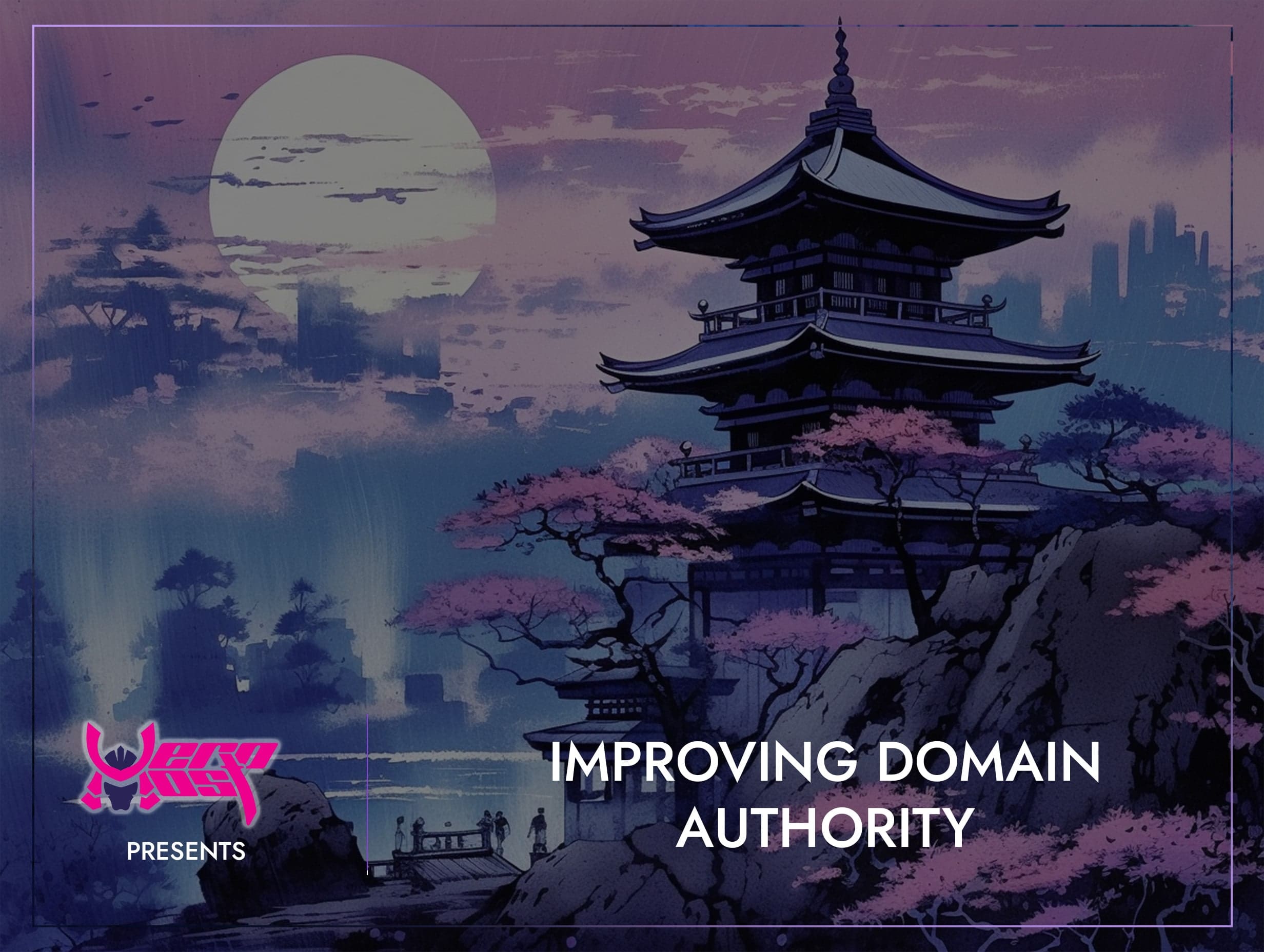Understanding Domain Authority: A Key to Unlocking SEO Success
- Home
- Domain Authority
- Understanding Domain Authority: A Key to Unlocking SEO Success

- Mikey Ryu
- November 13, 2023
- 0
Understanding Domain Authority: A Key to Unlocking SEO Success
What is Domain Authority
In the ever-expanding universe of the internet, where websites jostle for attention and prominence, understanding the nuances of Domain Authority (DA) has become imperative for digital success. Developed by Moz, Domain Authority is more than just a metric; it’s a compass that guides your website through the complex terrain of search engine rankings. In this comprehensive exploration, we delve into the definition, significance, and factors that shape Domain Authority.
Defining Domain Authority
At its essence, Domain Authority is a numerical score assigned to a website on a scale of 0 to 100, indicating its potential to rank on search engine result pages (SERPs). The higher the score, the greater the likelihood of ranking well. While it doesn’t directly impact search rankings, it serves as a predictive measure of a website’s performance in comparison to others.
Moz, the pioneering SEO software company, devised this metric by considering various factors that contribute to a website’s overall authority. These factors, both on and off the website, play a pivotal role in determining how search engines perceive the site’s credibility and relevance.
Factors Influencing Domain Authority
Linking Root Domains:
Perhaps the most influential factor, the number and quality of unique websites linking to your domain greatly impact your DA. Backlinks from authoritative sites carry more weight in this assessment.
MozRank and MozTrust:
MozRank measures the popularity of the links to your site, while MozTrust gauges the trustworthiness of these links. A combination of both contributes significantly to your Domain Authority.
Content Quality:
The age-old adage “content is king” holds true in the realm of SEO. High-quality, relevant content not only engages your audience but also attracts natural backlinks, a key factor in DA.
On-Page SEO:
Proper on-page optimization, including the strategic use of keywords, meta tags, and headers, enhances a website’s visibility to search engines and positively influences Domain Authority.
Social Signals:
While debatable in their impact, social media signals may contribute to a website’s authority. Content that is shared and linked on social platforms can indirectly influence DA.
Site Loading Speed:
In the era of instant gratification, a fast-loading website is crucial. Search engines prioritize user experience, and a sluggish site can lead to a decrease in Domain Authority.
Mobile-Friendliness:
With the increasing use of mobile devices, having a mobile-friendly website is not just a recommendation; it’s a necessity. Responsive design positively affects both user experience and Domain Authority.
Domain Age:
While not the sole determinant, the age of a domain is considered. Older domains, often associated with stability and reliability, tend to have higher Domain Authority.
Technical SEO:
The technical aspects of your website, including proper structure, clean URL formats, and effective use of sitemaps, contribute to the overall health of your site and influence DA.
Measuring and Monitoring Domain Authority
Understanding your website’s Domain Authority is the first step in optimizing it. Moz provides a user-friendly tool to check your DA score, allowing you to monitor changes over time. It’s crucial to note that improvements in DA may take time, and consistency in monitoring is key to understanding the impact of your SEO efforts.
Why Domain Authority Matters
Beyond being a mere number, Domain Authority holds substantial significance in the digital landscape:
Search Engine Rankings:
Websites with higher Domain Authority are more likely to rank higher in search results. This increased visibility translates to more organic traffic, a coveted commodity in the digital world.
Credibility and Trust:
A high Domain Authority is a mark of credibility and trustworthiness. Users are more inclined to engage with websites that have a strong online authority.
Partnerships and Collaborations:
Businesses and influencers often consider Domain Authority when seeking partnerships. A high DA opens doors to valuable collaborations, expanding your digital reach.
Advertising Opportunities:
Advertisers prefer websites with higher Domain Authority, as it signifies a larger and more engaged audience. This opens up opportunities for monetization and partnerships.
Competitive Edge:
In competitive industries, a higher Domain Authority provides a significant competitive edge. It positions your website as a leader in your niche, attracting both users and collaborators.
Conclusion
Understanding Domain Authority is not just an SEO strategy; it’s a roadmap to digital success. By comprehending the factors that shape it, regularly measuring and improving your score, and acknowledging its broader impact on your online presence, you can navigate the complex world of SEO with confidence. As you embark on this journey, keep abreast of industry trends, algorithm updates, and best practices to ensure the continued growth of your online authority. Remember, building a robust Domain Authority is a gradual process that requires dedication, quality content, and strategic optimization. As you implement these strategies, watch your website ascend the ranks, standing tall in the digital landscape.
Search
Categorys
- Branding (12)
- Business Growth Guides (3)
- Business Insights (3)
- Content Marketing (43)
- Domain Authority (19)
- Email Marketing (28)
- Google Analytics & Search Console (5)
- Hack or Not (2)
- Hero Host News (0)
- Inbound Marketing (32)
- Lessons From Asia (40)
- Marketing Guides (11)
- Martial Arts Journey (14)
- Outbound Marketing (8)
- Search Engine Optimisation (SEO) (41)
- Social Media Marketing (38)
- Web Design (20)
- Website Hosting (4)
- Wordpress (2)






